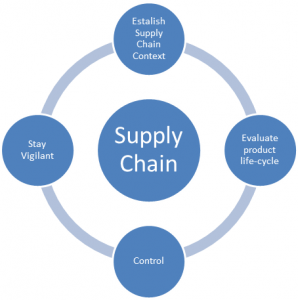
As a private investigator here in Oregon, I get inquiries from all kinds of people asking me to investigate all kind of “things.” I once had a client who was convinced that the Illuminati was responsible for the murder of his girlfriend. The police had already investigated the case and several individuals confessed and were convicted. But this client told me an elaborate and bizarre story and wanted me to delve deep into the inner-workings of the Illuminati and find the real killers.
I also had a client that was convinced a former business associate was running a large multi-state human sex trafficking ring. More than anything, this client had an ax-to-grind and wanted to “get the evidence” against his former business associate and turn it over to law enforcement as a way of getting-back at him.
Then there was the woman who felt she was being targeted by poison gas. And there was the case involving a lady who was so paranoid that she would only speak to me by peeking out from underneath a blanket that she kept over her head and face at all times when we spoke. I also had a prospective client who was convinced that his local police department was involved in wide-spread electronic surveillance on numerous citizens.
For the record: I accepted the Illuminati, sex trafficking, poison gas, and peak-a-boo case, but referred the man with the electronic eavesdropping concerns to someone who had more expertise in electronic surveillance counter measures.
With all the “unusual” investigative requests I get, I am seldom surprised. But when a local farmer called me and told me he was the victim of crop theft I was intrigued. Crop theft? I had never given it a thought before – tell me more.
Oregon boasts an ideal climate for growing high quality hazelnuts and accounts for more than 90% of the hazelnuts grown in the USA (locals here call them Filberts). Hazelnuts are growing on more than 30,000 acres here in Oregon and the yearly crop value is around 90 MILLION dollars. My client was a hazelnut farmer who went to check on his field to see if it was ready to harvest and found that person(s) unknown had already harvested all of the hazelnuts from this 18-acer plot!
Years ago when I was a police officer I once arrested a man for stealing some plastic garbage bags of lawn grass clippings (yep, the stuff that comes out of your lawn mower as you mow your lawn!)* so I knew that thieves will steal almost everything. But I had never heard of someone going through the effort of harvesting and stealing a farmer’s crop.
Part of investigating this case was educating myself about how hazelnuts are harvested, the equipment needed to harvest a crop, how the nuts are processed, and how they are usually sold. Along the way, I learned that crop theft – especially theft of nuts like walnuts, almonds, and pistachios, is a growing (and very expensive) problem. Have you been to the store lately and seen what a small package of nuts cost?
Crop theft is BIG TIME theft!
Usually the growers are not insured against the loss and a trailer load of nuts or a crop surreptitiously harvested can be valued at $150,000 to over $500,000. This is BIG TIME theft!
In 2015 a grower in California reported the theft of $400,000 worth of pistachios. In this case the thieves did not even bother to put in the labor necessary to harvest the crop. They posed as a legitimate trucking company and showed up at a processing plant to collect “their” load. Thieves do not discriminate. They will steal almonds, pistachios, walnuts, cashews, and in my case – hazelnuts.
Crop theft takes on many forms. In the USA and Canada grain theft is gaining momentum and there have been reports of pumpkin patches being cleared out overnight and berry fields being picked by thieves. It is unlikely that the thieves are doing the manual labor of picking these crops themselves – thieves don’t like hard work. Instead they hire unsuspecting farm laborers who think they are working for the grower or a labor contractor.
In states like Oregon were marijuana cultivation is legal, marijuana growers are always concerned about crop theft and crop sabotage. The concern is so great that it has spawned a whole new security industry.
SOLUTIONS
As in all security situations, there is no single “magic-bullet” that will completely solve the problem. Rather, it is a series of security steps that when taken together, can have an impact on the problem. Effective crop theft prevention starts with increased awareness and vigilance, protective security measures, supply chain controls, and robust investigation after the fact.
Awareness and vigilance
 Rural fields are “easy pickings” for crop thieves. In past years, most crop growers did not give crop theft any thought. In some areas that have not been hit hard by crop thieves’ that is still the case. Many growers have the attitude that crop theft is something that happens someplace else and to someone else – not them. The goal of security awareness is to encouraged growers and farm workers to think about security in virtually every decision they make. Only when security becomes second nature will it become truly effective.
Rural fields are “easy pickings” for crop thieves. In past years, most crop growers did not give crop theft any thought. In some areas that have not been hit hard by crop thieves’ that is still the case. Many growers have the attitude that crop theft is something that happens someplace else and to someone else – not them. The goal of security awareness is to encouraged growers and farm workers to think about security in virtually every decision they make. Only when security becomes second nature will it become truly effective.
To increase awareness and develop strategies to combat the theft of nuts, growers in California held an Emergency Nut Theft Summit to bring together growers, processors, trucking companies, insurers, and law enforcement.
Protective security measures
 Most crop fields are not completely fenced and often roads leading into and out of fields are not even gated. Fencing an entire field may not be practical or economically feasible but main ingress and egress roads should be locked with sturdy metal gates. Cost effective technology should be used where feasible. Gates can be fitted with relatively inexpensive sensors that can alert a grower via smart phone when a gate is forced opened or opened during an unusual time of the day or night.
Most crop fields are not completely fenced and often roads leading into and out of fields are not even gated. Fencing an entire field may not be practical or economically feasible but main ingress and egress roads should be locked with sturdy metal gates. Cost effective technology should be used where feasible. Gates can be fitted with relatively inexpensive sensors that can alert a grower via smart phone when a gate is forced opened or opened during an unusual time of the day or night.
Surveillance cameras might serve as some deterrent but be aware that surveillance cameras alone often have a very minimal deterrent value – see previous article entitled: What Good are Security Surveillance Cameras? Despite the limited deterrent value of security surveillance cameras, they are invaluable in an investigation if a theft occurs.
Supply chain controls
 In an effort to deter haulers who are impersonating legitimate trucking companies, some nut processors in California are now inspecting shipping paperwork more closely and taking a thumb print of drivers who haul loads. Some counties are also passing ordinances requiring anyone buying or selling wholesale nuts to have a proof of ownership certificate saying where and when they got them.
In an effort to deter haulers who are impersonating legitimate trucking companies, some nut processors in California are now inspecting shipping paperwork more closely and taking a thumb print of drivers who haul loads. Some counties are also passing ordinances requiring anyone buying or selling wholesale nuts to have a proof of ownership certificate saying where and when they got them.
To combat grain thefts a number of “confetti” products have been developed that can be mixed into the grain and provide positive ownership information. One product called Cropgard consists of tiny squares of newsprint with code numbers which are mixed into grain. According to the company, “These coded flakes serve as a theft deterrent and marking agent for positive identification, protecting the grain from theft. “
Investigations
Catching and prosecuting crop thieves has a real deterrent effect. Some sheriff’s department in California have Agricultural Crimes Units with dedicated investigators to investigate agricultural thefts. And in some cases, growers turn to private investigators like myself who have experience in investigations and physical security. Private investigators who can meld their investigative skills with physical security expertise can investigate the theft and can also assess security problems and make practical and cost-effective security recommendations.
* In the case of the stolen grass clippings, I was working as a Portland (Oregon) Police Patrol Officer when I saw someone pull up to an unattended Goodwill donation site. The person dropped off three large garbage bags that I presumed contained clothing. Nothing seemed out of the ordinary – just someone making a charitable donation. Just a few minutes later a man in a truck drove up to the donation site and started rummaging through the items. He ended up taking the three plastic garbage bags without looking to see what was inside.
As he drove away from the scene I stopped him. He admitted to taking the bags from the donation site. When I opened up the bags to see what he just stole, I was surprised to see that the first person who I though was just a good guy making a charitable donation actually “donated” his grass clippings! And then this thief shows up and steals the grass clippings the first guy disposed of at the donation site! Like I said, thieves will steal almost everything.
As a side note, I arrested the grass clippings thief. After all, theft is theft. He plead not guilty and opted for a bench trial. At trial defendant’s attorney proffered a defense that the grass clippings were trash and had no value so legally no theft of any value occurred. I guess his argument was that one cannot be convicted of theft when the item taken has no value. Kind of a novel defense. The judge thought about this for a moment and rejected this argument. The judge told the defendant that since he stole the two bags, the bags had value to him. It was just his tough luck that he ended up stealing someone else’s garbage.




